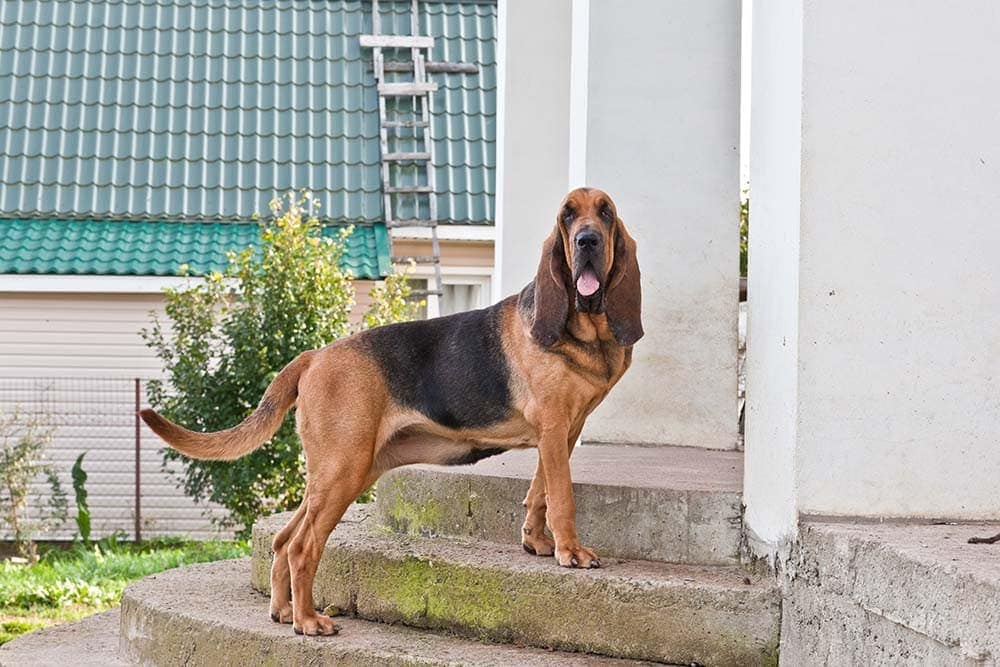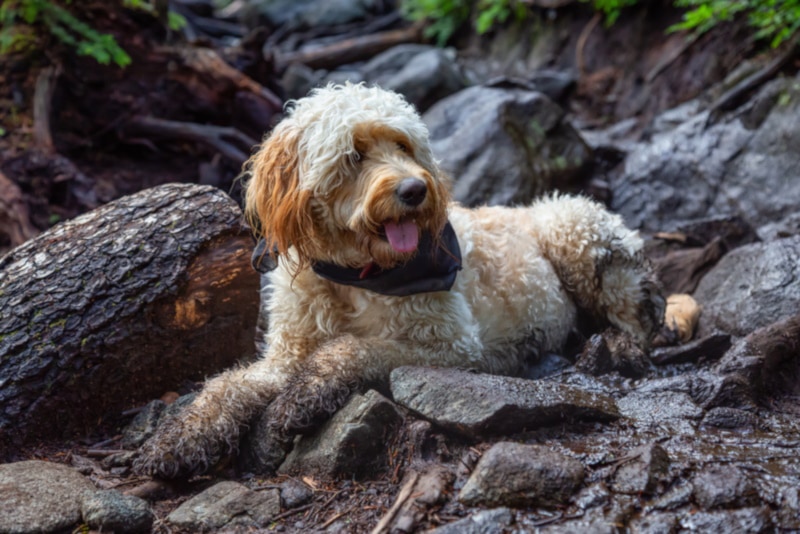Are Basset Hounds Hypoallergenic? Allergy-Friendly Breeds & FAQs
By Brooke Bundy
Updated on
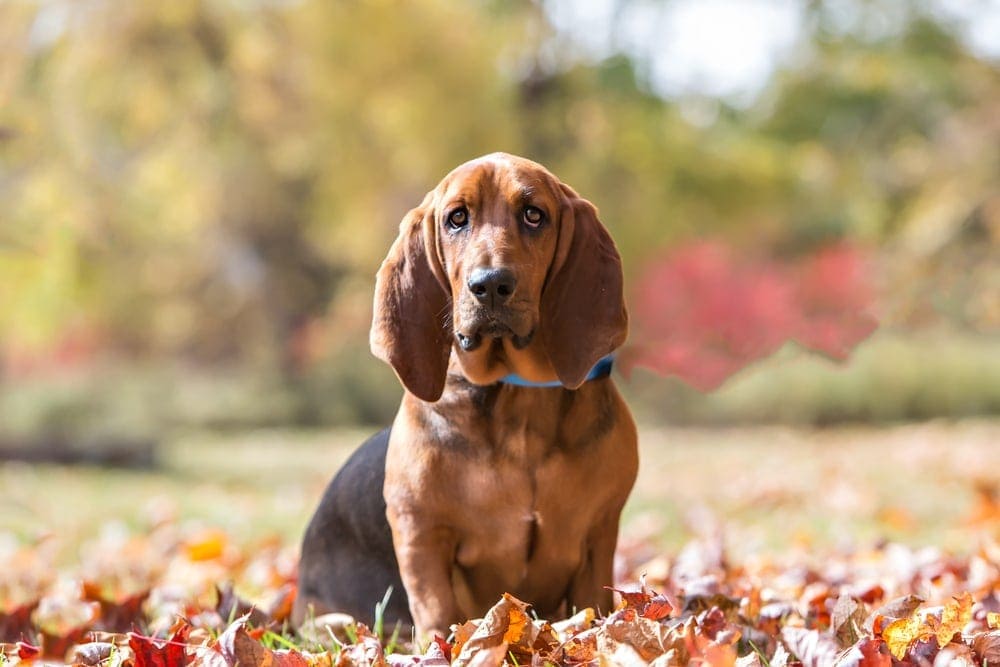
With their low profile and easy-going nature, it would make sense for the Basset Hound to also give your allergies a break. Unfortunately, though, the Basset Hound isn’t a hypoallergenic dog breed.They may be an okay choice for people with mild allergies and better than some breeds. For example, they won’t fill your house with fur tumbleweeds like the double-coated Siberian Husky who sheds year-round and “blows” their coat seasonally. However, their short coat does shed moderately throughout the year. Let’s talk a little more to get a sense if a Basset Hound might be a good choice for you.
What Is a Hypoallergenic Dog?
Did you know that there’s no such thing as a truly hypoallergenic dog? Breeders often proudly declare that their hypoallergenic puppies are perfect for allergy sufferers because they won’t provoke allergic reactions the way that normal dogs do. While they’re partially correct, most people take this statement to mean that these dogs won’t cause any allergic reactions at all. Even worse, some people who are extremely allergic to dogs have false hope that they will be fine with a hypoallergenic breed, such as a Goldendoodle.
“Hypo” means “below normal,” so in that sense, yes, there are dogs that produce a lower level of allergens. Canines that are low shedding tend to be in this category. These are usually dogs that have longer hair and need to visit the groomer for frequent haircuts like Schnauzers and Poodles rather than a breed such as the Labrador that shed excessively all year round.
Unfortunately, though, humans aren’t allergic to dog hair or fur. Instead, it is a protein found in canine skin cells and saliva that provokes allergies. Dogs that shed more tend to spread these proteins all around the house, transferring them more easily to humans. So although low shedding ‘hypoallergenic’ dogs can minimize the chance of an allergic reaction since every dog possesses skin cells and saliva, every dog is technically able to spark a reaction if someone is allergic to canines.

Is the Basset Hound Hypoallergenic?
The Basset Hound is not hypoallergenic. Their short, smooth fur sheds moderately year-round, so they can still pass the allergy protein to humans through the hair that is shed. They need regular grooming at least weekly, and you’ll want to keep the lint roller nearby.
Should I Adopt a Basset Hound If I’m Allergic to Dogs?
If you’re severely allergic to dogs, even a hypoallergenic breed isn’t a good choice, much less the Basset Hound. Only you know the true extent of your allergies; what you’re capable of and what you’re not.
Try to spend time with a Basset Hound before you commit to adoption. If you’re adopting from a shelter, ask if you can foster a Basset Hound before you adopt. At the very least, shelters usually have a meet-and-greet space where you can interact with the dog you’re considering adopting. Choosing a dog is a lifelong commitment, so you want to be as certain as you can be that it’s going to work out before you sign the papers.
The 4 Tips to Alleviate Your Symptoms
1. Vacuum Regularly
Any material surface that can’t be machine-washed should be vacuumed at least once a week. Sofas, curtains, and carpet can all harbor dander and even fleas depending on where you live. Carpet should be avoided entirely if you suffer from allergies because it’s extremely hard to keep allergen-free. However, if you don’t own the house you live in, that might not be possible.
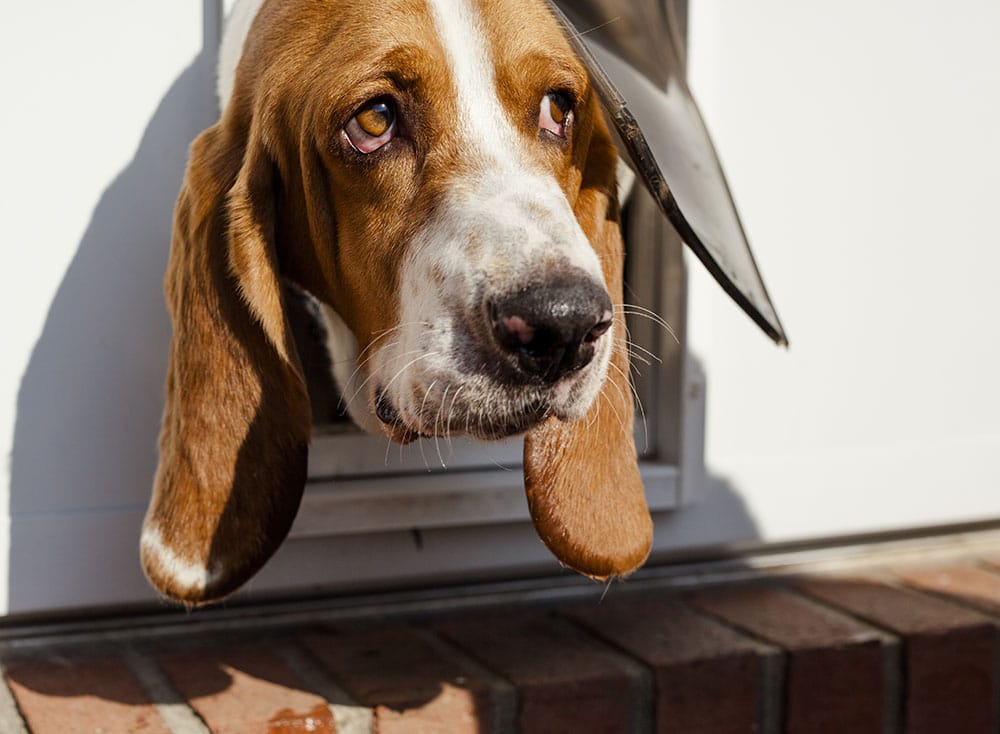
2. Consider Keeping Your Bedroom a “Dog-Free” Zone
Your bedroom is the place where you want to nestle your face in your sheets and go to sleep. You don’t want that to be the spot where your allergies flare when you’re trying to relax. We know it’s tough, but you might want to restrict your Basset Hound to certain areas of the house so that you can have a safe space if you have an allergy flare up.
3. Ask Someone Else If They Will Be Responsible for Bathing and Grooming
Regular grooming can really help reduce allergic reactions as less hair is shed around the house. Grooming should ideally be done by someone who is not allergic. See if a friend or family member will help with this, if that’s not possible it would be a good idea to wear a mask and maybe gloves when you brush your dog.
4. Talk to Your Doctor
Talk to your doctor before adopting a dog to discuss your symptoms and what allergy treatments are available and safe for long term use.
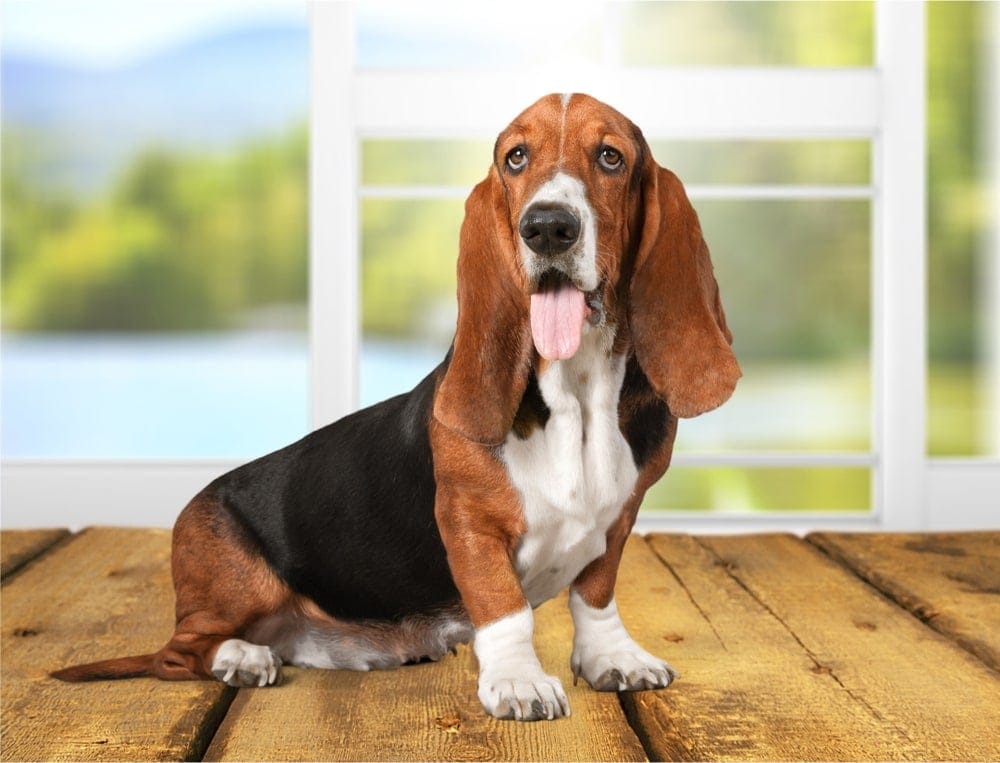
The 5 Allergy-Friendly Dog Breeds
Now that you know that there’s no such thing as an allergen-free dog, here are a few dog breeds that are often classified as hypoallergenic. These dogs might still provoke a reaction if you’re super sensitive, but may be an okay option if you only have mild allergy symptoms:
1. Poodle
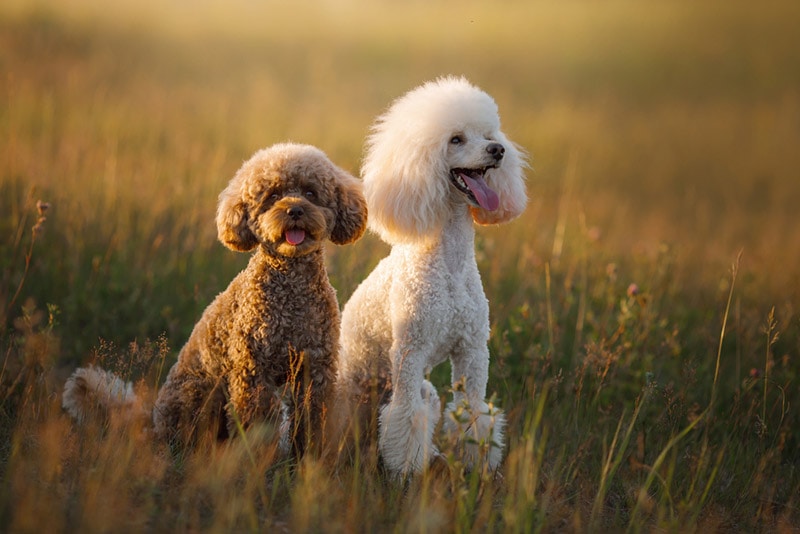
All sizes and crossbreeds count. From the Miniature Poodle to the Labradoodle, the Poodle is one of the most highly sought allergy-friendly breeds because they’re very versatile and tend to make great companion animals. Popular depictions of Poodles lazily lounging on sofas and riding in purses have painted an inaccurate picture of this breed’s active personality. Despite being placed in the non-sporting group, Poodles were originally bred to hunt ducks,their name comes from the German word ‘pudel’ which means ‘to splash in the water’.
2. Schnauzer
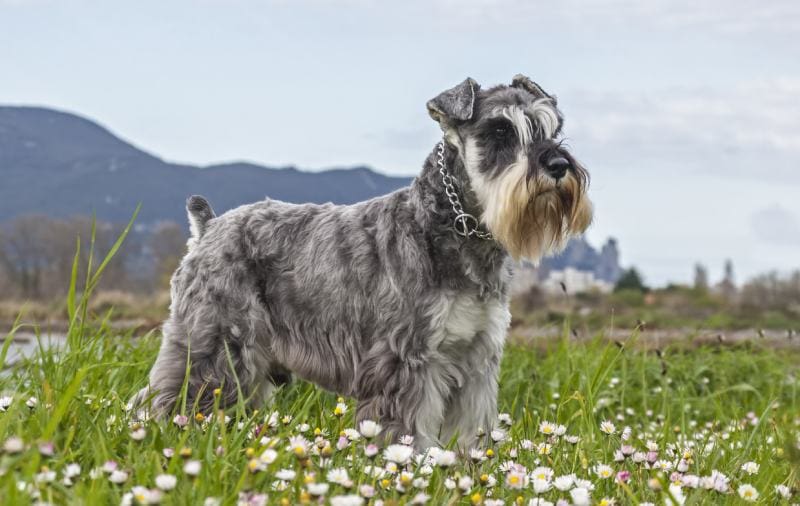
All varieties of the Schnauzer are considered less allergenic , but the Miniature Schnauzer is the most popular in the United States. They were actually created in the mid-19th century by breeding the original Standard Schnauzer with the Poodle and Affenpinscher.
3. Afghan Hound
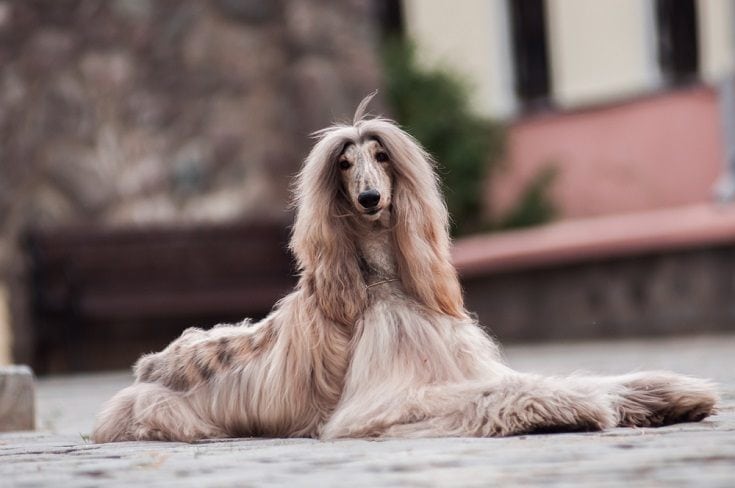
Even with their long, flowing hair that’s often styled like a woman’s from the 1960s, Afghans can cause fewer allergy symptoms than many other breeds. Bear in mind though that, according to the AKC, it takes several hours of brushing and bathing every week to maintain the Afghan Hound’s gorgeous hair. Some sources say that the Afghan Hound was possibly the first dog breed. After serving as prized hunting companion dogs in the Asian mountains, this dog has more recently found its way into living rooms and show rings due to their marvelous coat.
4. Basenji
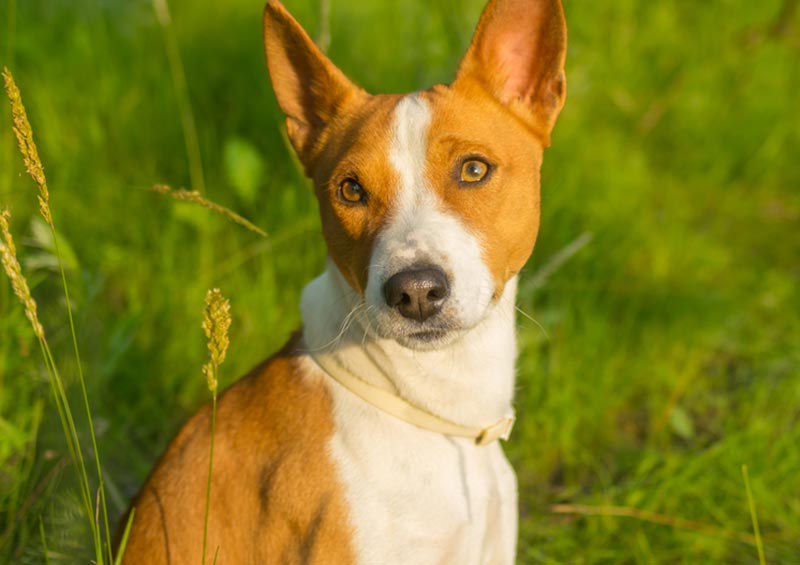
The orange and white Basenji sports a small curled tail and upright ears. Originally from Africa, this hound has always managed to balance being a domestic and wild dog. At the same time as some were presented as gifts to the Pharaohs of Ancient Egypt, other members of their breed remained self-sufficient hunters in the reeds. The short-haired Basenji has minimal grooming needs, requiring only a weekly grooming with a soft bristle brush.
5. Yorkshire Terrier
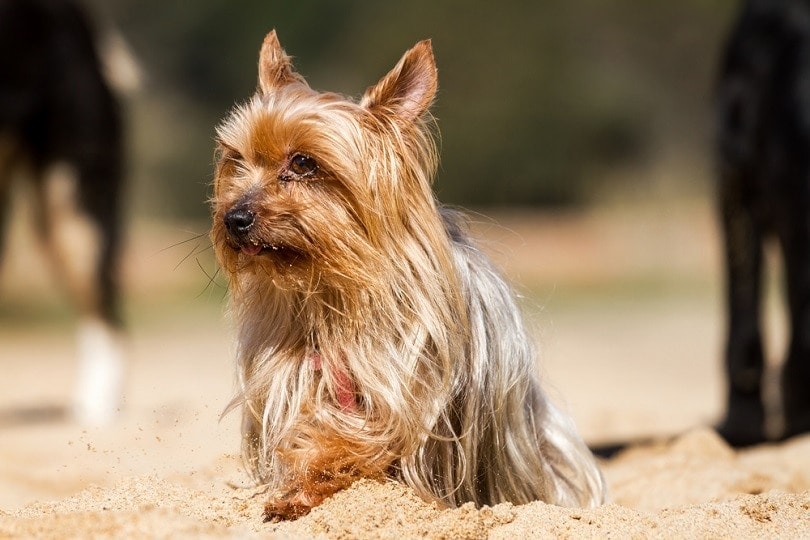
Affectionately known as the Yorkie, this little companion dog grows long silky hair that needs frequent brushing to prevent tangles. They’re a small breed usually weighing no more than 7 pounds.
Conclusion
Basset Hounds are not considered a hypoallergenic dog breed. Even dog breeds that are referred to as hypoallergenic, such as the Poodle, aren’t completely allergen-free and might not be the best choice of pet for someone with severe allergic reactions. You know your body better than anyone but make sure to speak to your doctor for advice before bringing a Basset Hound or any kind of dog home if you suffer from dog allergies.
Featured Image Credit: Victoria Rak, Shutterstock





